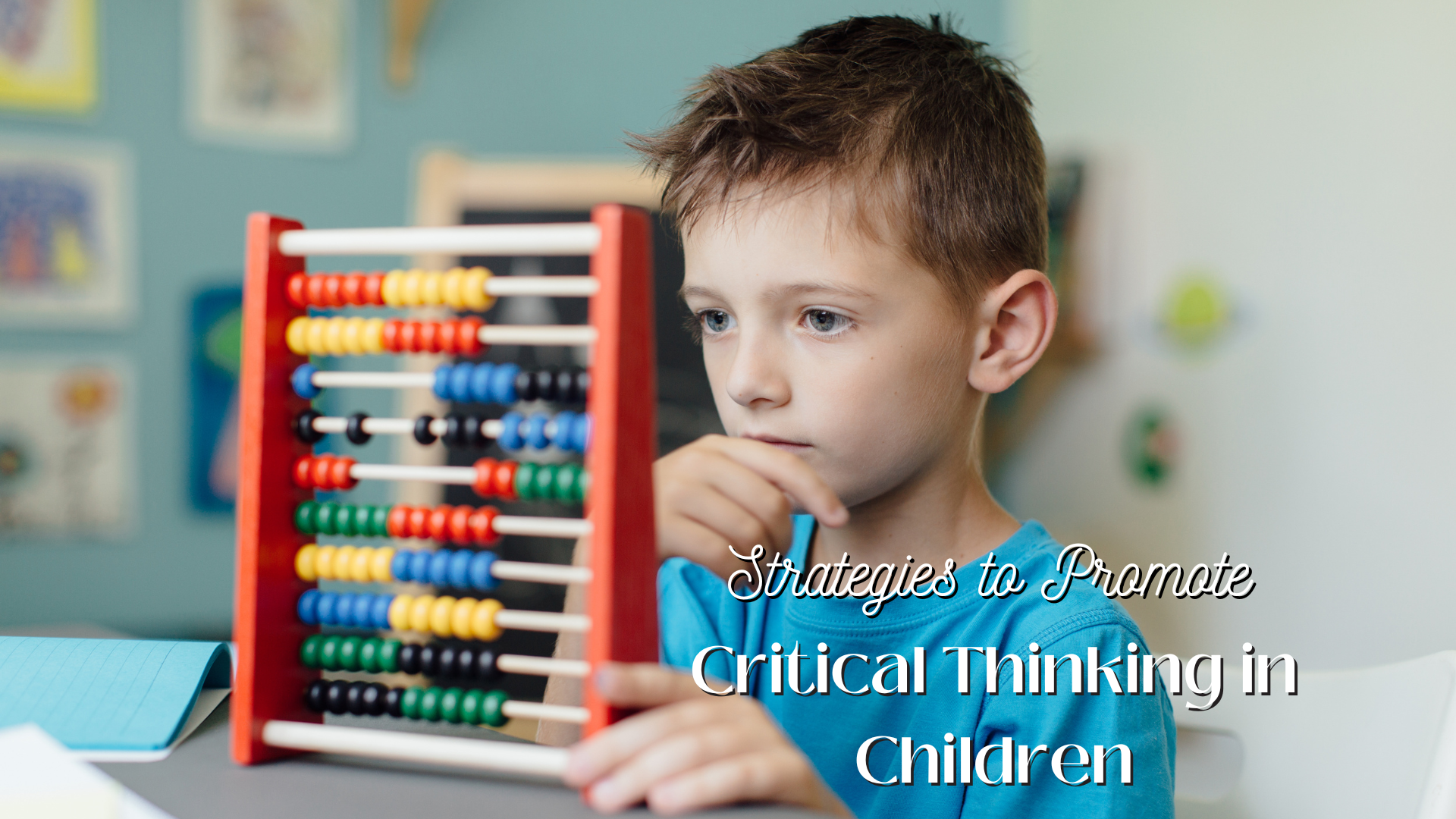Published by: Digital Schools
Promoting critical thinking in children is essential for their cognitive and problem-solving development. Critical thinking helps them analyse information, make sound decisions, and become more independent learners. Here are some strategies to encourage critical thinking in children:
- Ask Open-Ended Questions: Encourage children to think deeply by asking questions that require more than a simple “yes” or “no” answer. Questions like “Why do you think that happened?” or “What would you do differently?” prompt them to think and explain their reasoning.
- Encourage Curiosity: Foster a sense of wonder and curiosity by encouraging children to ask questions about the world around them. This can include questions about natural phenomena, historical events, or everyday occurrences.
- Problem-Solving Activities: Engage children in activities that require problem-solving. Puzzles, brainteasers, and age-appropriate games like chess can help them develop critical thinking skills.
- Socratic Dialogue: Use the Socratic method to engage in open, reflective dialogues with children. This involves probing questions that challenge their assumptions and encourage them to think more deeply about a topic.
- Compare and Contrast: Encourage children to compare and contrast ideas, objects, or concepts. This helps them develop analytical skills and see the nuances in different situations.
- Debate and Discussion: Create a safe environment for children to express their opinions and engage in debates or discussions. Encourage them to provide evidence to support their arguments and to consider alternative viewpoints.
- Read and Analyse Literature: Reading and discussing books, stories, or articles can help children explore complex themes and develop their ability to analyze characters, plot, and the author’s intent.
- Cultivate Problem-Finding Skills: Instead of just solving problems, teach children to identify problems. Encourage them to notice issues in their environment and think of potential solutions.
- Encourage Critical Media Consumption: Help children critically assess the media they consume, including TV shows, movies, and online content. Discuss biases, persuasive techniques, and reliability of sources.
- Teach Information Literacy: Show children how to evaluate the credibility of sources, including books and websites, and how to distinguish fact from opinion.
- Real-Life Scenarios: Present real-life scenarios and ask children to think about what they would do in those situations. This helps them apply critical thinking to practical problems.
- Critical Thinking Games: Board games like Clue, logic puzzles, and strategy games like chess or Settlers of Catan can be excellent tools for developing critical thinking skills.
- Encourage Creativity: Creativity and critical thinking often go hand in hand. Encourage children to think creatively and find multiple solutions to a problem.
- Model Critical Thinking: Children learn by example. Demonstrate your own critical thinking skills by talking through your decision-making processes and problem-solving methods.
- Reflect on Mistakes: Encourage children to learn from their mistakes and setbacks. Discuss what went wrong and how they can improve in the future.
Remember that fostering critical thinking is a gradual process, and it’s important to be patient and supportive as children develop these skills. By consistently incorporating these strategies into their learning and everyday life, you can help children become more independent, thoughtful, and critical thinkers.


